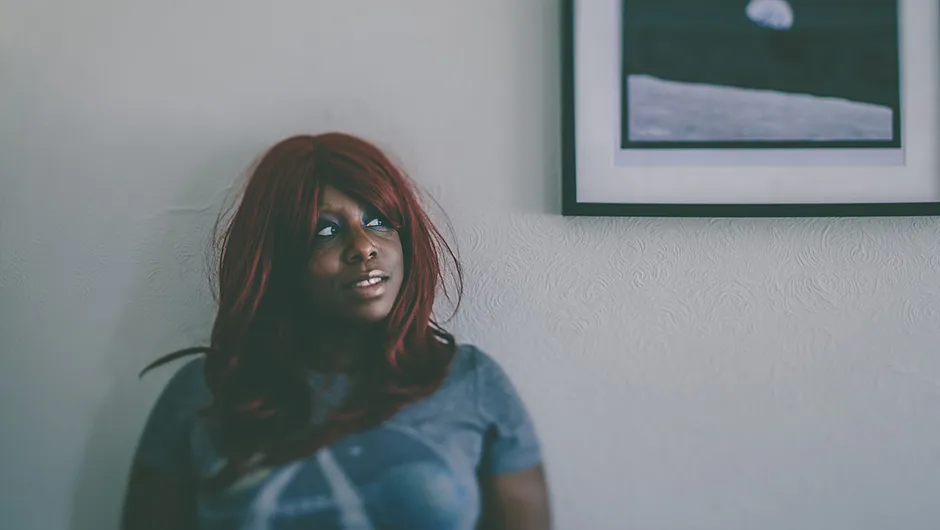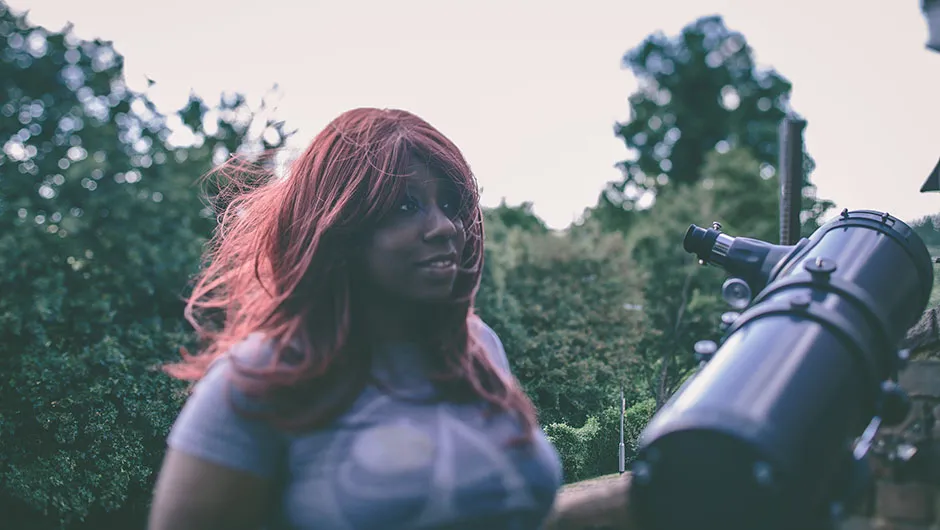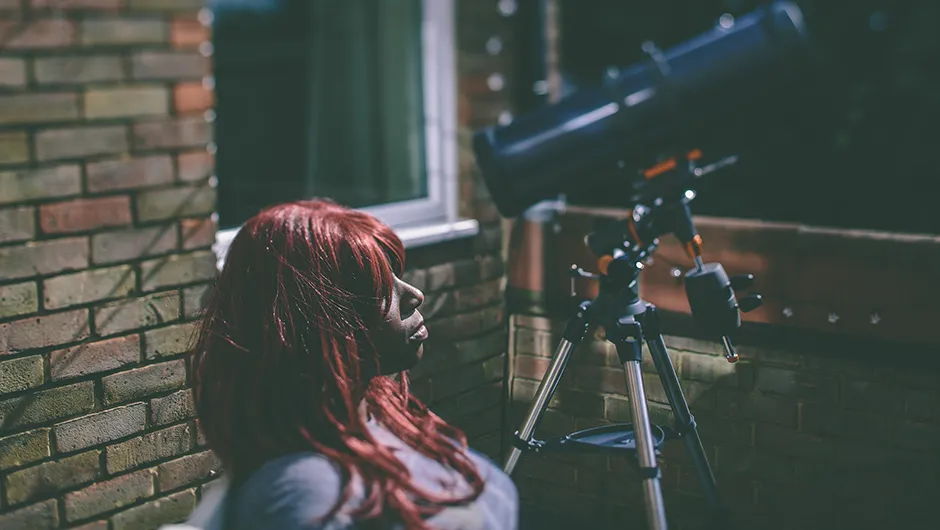Dr Maggie Aderin-Pocock is a familiar face of UK astronomy as co-host of The Sky at Night. But are young black British women receiving the support they need to follow in her footsteps? Image Credit: BBC
The UK is often touted as a vibrant multicultural melting pot, an island in which people of all creeds, colours and persuasions are accepted and woven into the ever-changing fabric of society.
Though in many ways the country does not live up to this hype, astronomy - one of the most inclusive activities a human can take part in (anyone can look up on a clear night) - in the UK should.
Sadly, however, at all levels from students to department heads, astronomy and astrophysics has a diversity problem.
Look for students and academics from non-white backgrounds and you will be disappointed.
Astronomy is a discipline that is overwhelmingly white and male.
The latest demographic survey from the UK's Royal Astronomical Society (RAS) revealed that 95 per cent of British respondents were white compared with 87.1 per cent of the general population.
Out of 903 respondents just one was black and British.
Less scientific but just as surprising are the results of a recent Twitter/Facebook call that Sheila Kanani, RAS Education, Outreach & Diversity Officer, put out on behalf of this article.
It asked respondents to name a single black British female astronomer or astronomy student other than The Sky at Night co-host Maggie Aderin-Pocock.
"I got a couple of people back saying 'Oh have you heard of so and so.
She's black and doing astronomy, and she's living in the UK'.
But they weren't actually British," Kanani says.
Perhaps the UK should be witnessing a spike in black women enrolling in astronomy courses, given Aderin-Pocock is inspiring new generations of astronauts, engineers and scientists through a range of activities.
"When Maggie was announced as one of the co-presenters of The Sky at Night, my mouth was on floor and I was utterly over the Moon, because it's the kind of thing I never thought I would see," says Institute of Physics press officer Melissa Brobby.
"Because of my colour and sex, seeing Maggie doing that made me go for science communication.
If women like her can do it then I knew I could too."

But Brobby is a rarity.
Having a black woman role model has not led to droves of black students signing up to astronomy courses around the country.
"Role models need to be realistic," says leading diversity psychologist Tinu Cornish, Advance HE (formerly Equality Challenge Unit).
"If you think that this person is such a superstar and is the only one that has ever made it, they can be thought of as the exception to the rule, and that isn't going to motivate or encourage or inspire."
Deeper complex and wide-ranging discouragements may also be at play.
For Brobby, Cornish and Kanani, a significant factor in discouraging young black girls at an early age is the role of parental support and careers guidance.
From talking to black communities, Kanani has found that physics is often perceived as not being vocational, and therefore of less significance than better recognised careers like medicine or finance.

Brobby has first-hand experience.
"Being a black person you're sort of told from the very beginning that you really have to make yourself noticed, because of the fact that you're black, because of the fact that racism still exists," she says.
"So my parents were more keen for me to go into journalism than science because they thought it would be a more credible career.
"Another issue is that girls are told from a young age that physics is more of a boy's subject," she adds, highlighting how black women face barriers due to both the colour of their skin and their gender.
"It's very male-dominated and people hear stories of harassment that would likely put someone off pursuing that career."
In the US a 2017 study brought these and many more issues into sharp relief, revealing a host of barriers and discouragements black women face in astronomy across the pond.
These range from subtle negative comments from peers about their race or gender, to overt racial and sexual harassment and assault.
The consequences of this can be profound, leading, for example, to a significantly high proportion of black females skipping classes or events because they feel unsafe.
But in the UK, while the situation could be similar, the lack of black female astronomers compounded by the UK's relatively small population means data is too scarce to know.

With little evidence to go on then, devising strategies that aim to support and encourage black female astronomers is tough.
But that does not mean nothing can and is being done.
Alongside various other activities, the RAS recently ran an event related to the filmHidden Figuresin Plymouth, London and Liverpool, inviting over 300 black and other non-white British schoolchildren to meet three female scientists and watch the movie.
However, they struggled to find scientists from a range of ethnic backgrounds.
Had they tried to specifically find black female astronomers or space scientists, their task would have been made impossible.
"It's hard to get astronomy-specific role models at the moment because they don't exist," adds Kanani.
"But if you can find a role model in STEM online who's black and British and female, that's better than finding no role model at all."
Through initiatives like Generating Genius - which supports high-achieving students from disadvantaged communities in their STEM education - or the Black British Academics network, more is being done to remove physical barriers to peers and mentors by linking with them online.
But most encouraging is the work of Advance HE.
There, the Athena SWAN and Race Equality charters are engaging universities and institutions in implementing comprehensive cultural change.
"If we want to change the outcomes for women and black and minority ethnic communities, we need to deal with conscious bias, structural barriers and unconscious bias," explains Cornish.
"Universities are getting a bit more confident now in tackling all three with commitment and adequate resources."

